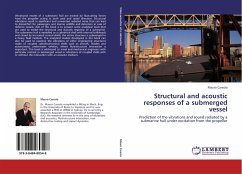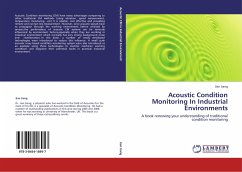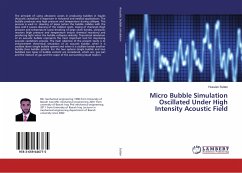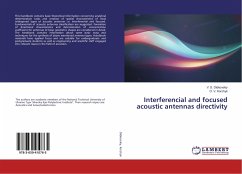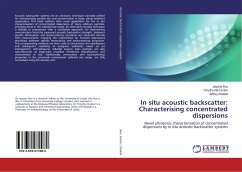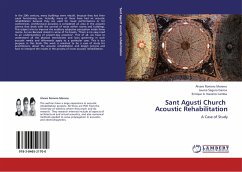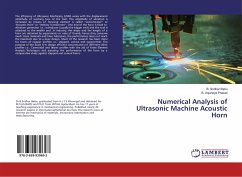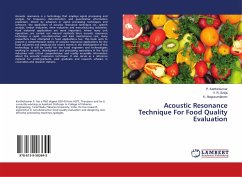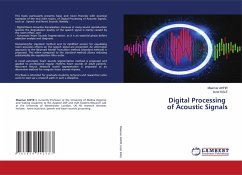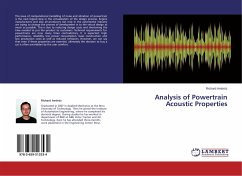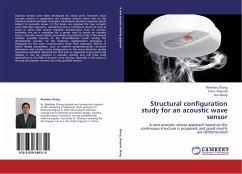
Structural configuration study for an acoustic wave sensor
A new acoustic sensor approach based on the continuous structure is proposed, and good results are demonstrated
Versandkostenfrei!
Versandfertig in 6-10 Tagen
39,99 €
inkl. MwSt.

PAYBACK Punkte
20 °P sammeln!
Acoustic sensors have been developed for many years. However, most acoustic sensors in application are chemical sensors which rely on the chemical material principle to predict mechanical vibration response signals subject to acoustics waves. In this book, we propose the new acoustic wave detection approach, considering that a continuous structure such as beam or plate with several response characteristics from an acoustic excitation can be a candidate for a sensor used to locate an acoustic source. Acoustic waves will be successfully reconstructed only if this inverse method provides bounds t...
Acoustic sensors have been developed for many years. However, most acoustic sensors in application are chemical sensors which rely on the chemical material principle to predict mechanical vibration response signals subject to acoustics waves. In this book, we propose the new acoustic wave detection approach, considering that a continuous structure such as beam or plate with several response characteristics from an acoustic excitation can be a candidate for a sensor used to locate an acoustic source. Acoustic waves will be successfully reconstructed only if this inverse method provides bounds to the ill-conditioned results during the identification process. So the Tikhonov regularization technique is employed for the wave reconstruction work from responses. Effects of sensor design parameters, such as material properties,sensor structure dimensions and random noise background on the wave detection quality have been evaluated. Results show that such an approach is very good and reliable, it can be practical in acoustic sensing and will have wide applications in the field of acoustic wave sensing, especially, in the areas of security and disaster recovery by using qualified sensors.



